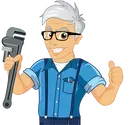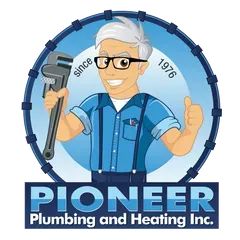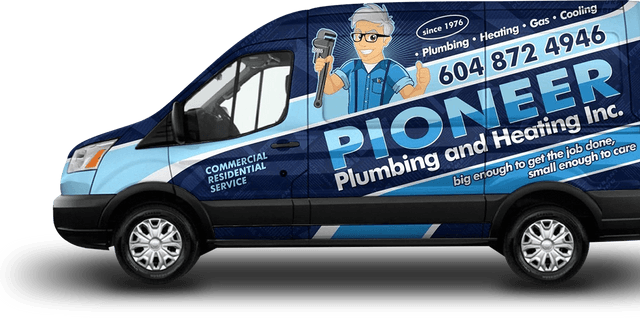Heat Exchanger & Heat Pump Installation
We offer 24 hour emergency service for heat pumps and heat exchangers. You can count on our heating technicians for quality heating and cooling repair at home or your business. Ask about our same day service when you call.
Our heating and air conditioning repair technicians have decades of experience with heat exchanger and heat pump systems. Call us any time for maintenance services, repair work, heat pump replacement or installation services.
Hybrid Dual Fuel Heat Pump
In terms of heating and cooling, a hybrid dual fuel heat pump offer the best of both worlds. Using this heating system, your home will have an energy-efficient device that can work all year round. It combines a traditional heat pump with a furnace. You can save energy and money on utility bills with a dual fuel heat pump, in addition to helping the environment.
Having a heat pump will cover your heating and cooling needs all year long, so you only need a single HVAC system. Heat pumps adjust to the weather outside because they are flexible. Heat pumps, for instance, extract heat from outside air and transfer it into the house during the cold months. During warmer weather, they remove hot air from the home to cool the home.
In the summer months, the heat pump in the system works like a central air conditioner, transferring hot air out of your house until your thermostat reaches your desired temperature. It also provides cost-efficient heat during milder temperatures in the fall and spring.
As the temperature drops during the winter months, the dual fuel furnace takes over and works to heat the entire house. The purpose of a furnace is to efficiently and quickly convert fuel into heat. The furnace in your dual fuel system will keep you warm when it's cold outside.
Heat pumps only have one disadvantage - a shorter lifespan (around 15 years) due to the fact they move air all year round to reach the desired temperature.
DIY Maintenance
Virtually anyone can take a few minutes out of their weekend to check the filter and make sure the exterior part of the unit is kept free of dirt, debris, and obstructions. Doing these two things once or twice a year can help keep your unit humming along and increase its service life considerably, but there are other areas of heat pump service that are the domain of skilled technicians.
Repair Services
For heat exchanger service work, we are equipped to clean and repair all makes and models of flat plate, shell and tube heat exchangers to help reduce energy bills.
Our quality services for heat exchangers include…
- Chemical cleaning
- Wash on-site
- Clean-in-place (CIP)
- New gaskets and plates
- Complete new units
- Replace tube bundles
- Replace complete shell and tube exchangers
We can deliver and install replacement gaskets and plates for any make and model of flat plate exchangers. We ensure the unit is optimized for best heat transfer performance and energy savings. The installation process is timely and we do our best to not interfere with your daily routine.
One of the main selling points of heat pumps is that they are generally low maintenance units, but low maintenance does not mean no maintenance. Even in an ideal condition heat pumps require a degree of regular upkeep and servicing to keep the utility bills at reasonable levels. If left un-maintained, heat pumps can, of course, continue doing their job for a long time, albeit at an ever-decreasing rate of efficiency until complete failure finally sets in. Heat pump maintenance generally falls into two distinct categories-- ordinary household upkeep and annual checkups by expert contractors.
Routine Heat Pump Maintenance
Every heat pump service inspection is done by a knowledgeable technician who provides an opportunity to verify that everything in the system is actually working as anticipated. Among these chores is the need to perform a comprehensive heating system check which ensures that it will kick on when it is supposed to, and only when it is supposed to. While not a common occurrence, the heating system will sometimes fail to lock out when the system is supposed to be cooling the house. A good repair technician will know how to set things up to avoid that type of problem and keep energy costs low.
Another energy hog is when the defrost cycle does not function properly. Cooling systems can ice up when running for long periods of time. When this happens, it is necessary for the unit to self-defrost before resuming operations. If the defrost cycle does not work properly, the unit will continue to labor but will only produce hot air.
The biggest areas of concern when it comes to heat pump repair and service are the levels of refrigerant in the unit and proper operation of the thermostat that controls its operation. Good repair techs will know improper refrigerant levels cause the heat pump to work extra hard at best and can burn out the compressor in the worst case. This can be the most expensive type of heat pump failure and might even end up causing a fire if the area around the unit is not kept clear of weeds and other flammable debris. If the unit degrades to that point, heating and air repair becomes an expensive proposition. Hence the need for proper maintenance. Regular maintenance will set up the unit for optimal efficiency and life span.
Thermostat checks makes sure that the heat pump is cycling on and off at the correct temperatures and also that it is performing the proper function during that time period. Because the heat pump essentially is a bi-directional appliance that moves air in one direction during the summer and the opposite direction during the winter, problems with the thermostat being improperly set up, or improperly replaced at a later date, can lead to some unexpected consequences.
The service protocol should also include an examination of the duct work for those systems which employ them, inspection and lubrication of motors, inspection of drive belts, and a careful examination of the entire wiring harness to ensure that there are no signs of incipient failure.
Ideally, peak savings and optimal indoor comfort comes from running a system at its full capabilities, which are best achieved via full adherence to the maintenance protocols laid down by the manufacturer.
How a Heat Pump Works
A heat pump is part of a heating and cooling system and is installed outside your home. Like an air conditioner, it can cool your home, but it’s also capable of providing heat. In cooler months, a heat pump pulls heat from the cold outdoor air and transfers it indoors, and in warmer months, it pulls heat out of indoor air to cool your home. They are powered by electricity and transfer heat using refrigerant to provide comfort all year round. Because they handle both cooling and heating, homeowners may not need to install separate systems to heat their homes. In colder climates, an electric heat strip can be added to the indoor fan coil for additional capabilities. Heat pumps do not burn fossil fuel like furnaces do, making them more environmentally friendly.
How Does a Heat Pump Cool and Heat?
Heat pumps do not create heat. They redistribute heat from the air or ground and use a refrigerant that circulates between the indoor fan coil (air handler) unit and the outdoor compressor to transfer the heat. In cooling mode, a heat pump absorbs heat inside your home and releases it outdoors. In heating mode, the heat pump absorbs heat from the ground or outside air (even cold air) and releases it indoor.
What Types of Heat Pumps Are There?
The two most common types of heat pumps are air-source and ground-source. Air-source heat pumps transfer heat between indoor air and outdoor air, and are more popular for residential heating and cooling.
Ground-source heat pumps, sometimes called geothermal heat pumps, transfer heat between the air inside your home and the ground outside. These are more expensive to install but are typically more efficient and have a lower operating cost due to the consistency of the ground temperature throughout the year.
Where do Heat Pumps Work Best?
Heat pumps are more common in milder climates, where the temperature does not typically drop below freezing. In colder regions, they can also be combined with furnaces for energy-efficient heating on all but the coldest days. When the temperature outside drops too low for the heat pump to operate effectively, the system will instead use the furnace to generate heat. This kind of system is often called a dual fuel system. It is very energy efficient and cost effective.
If you need reliable repairs or maintenance work done on your heat pump call to set an appointment today. if you check out our google reviews you'll see that our customer satisfaction feedback is pretty decent.






